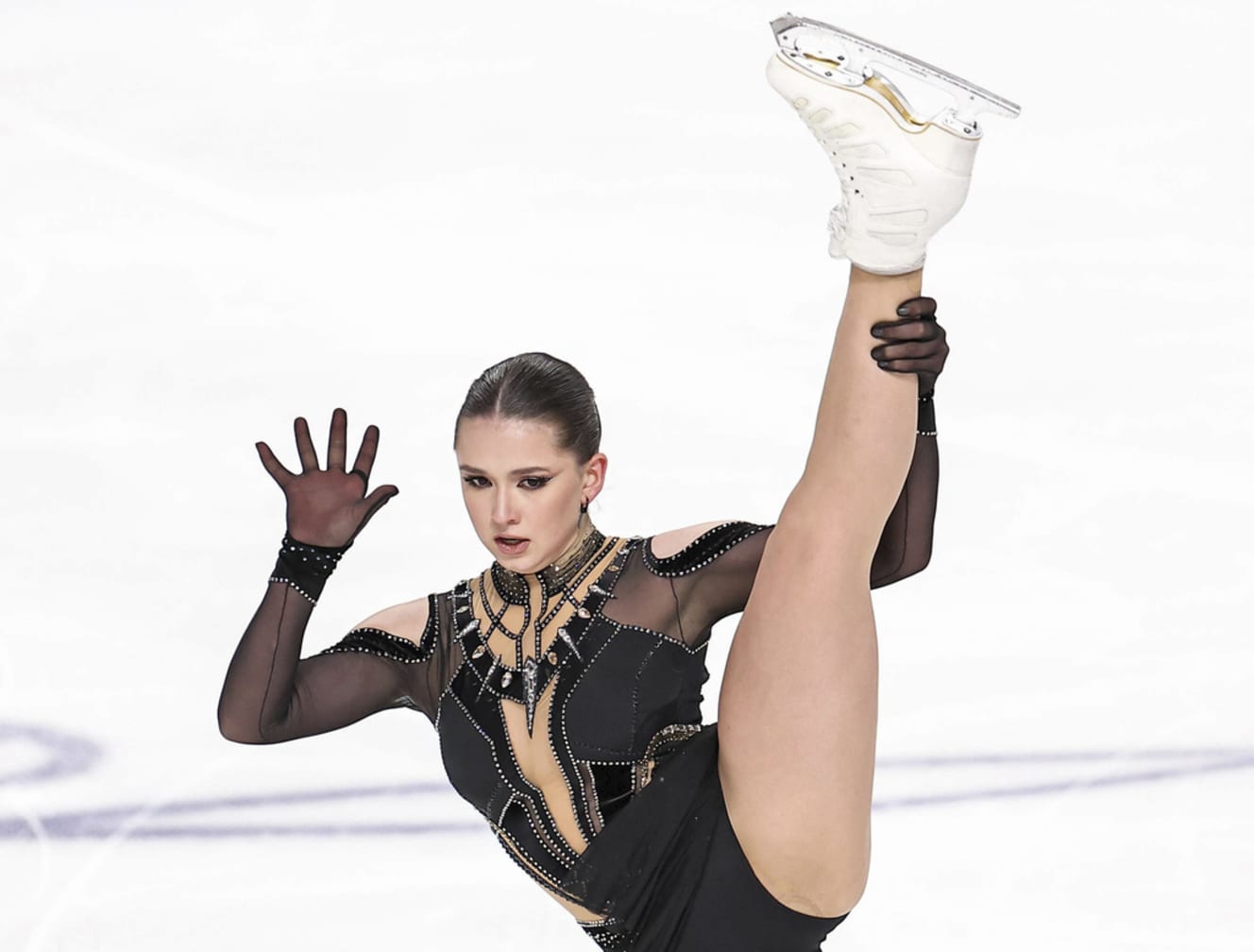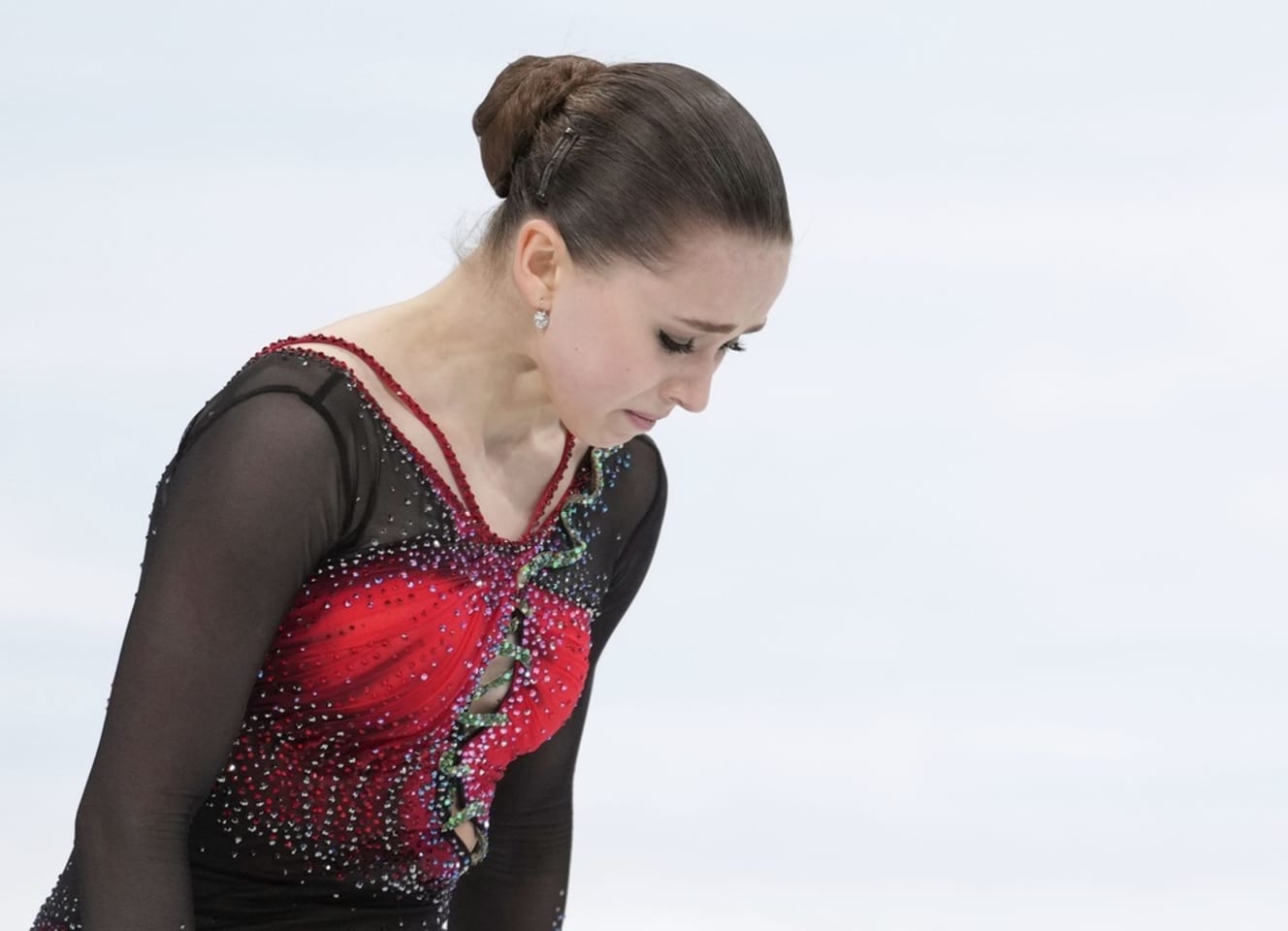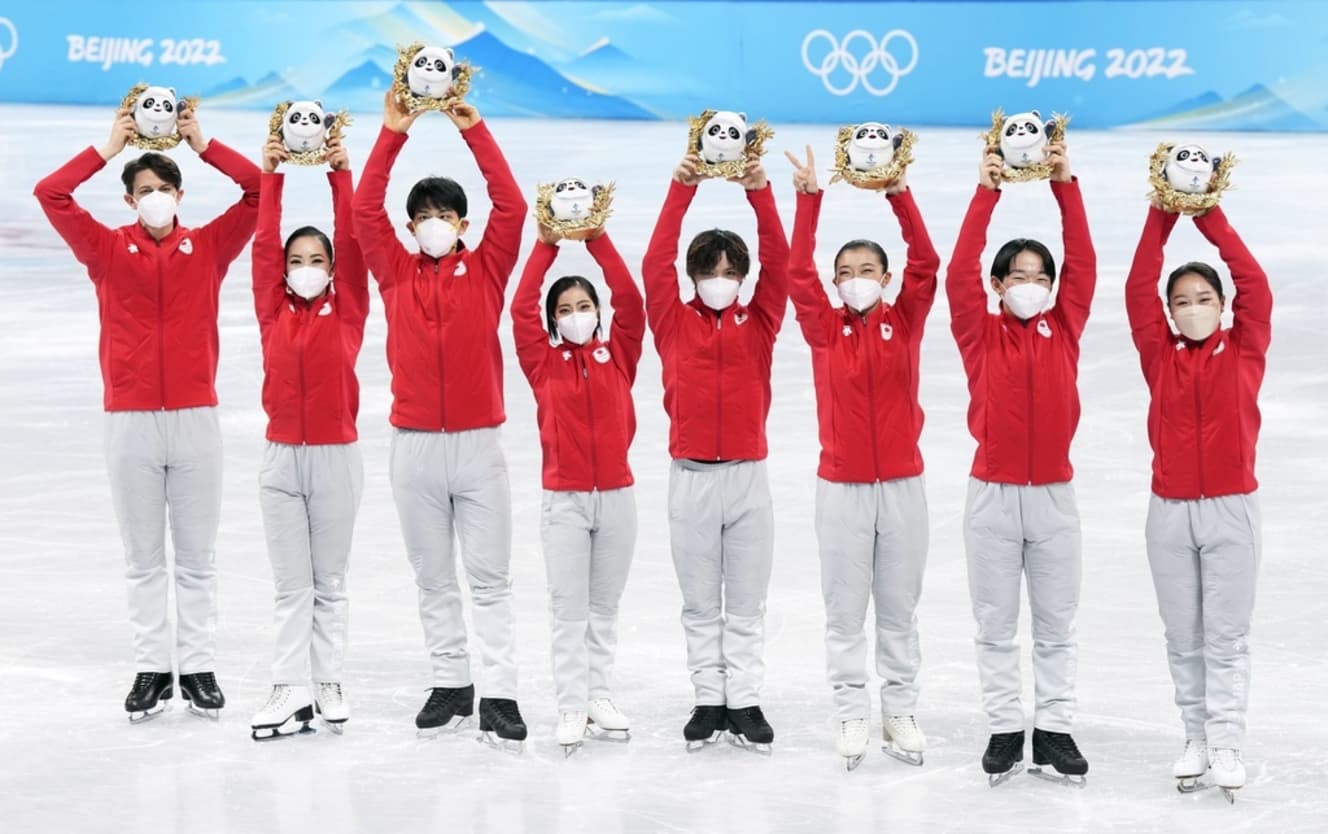Doping Scandal of Kamila Valieva Rocks Beijing Olympics
After two long years, the “gray” heroine was confronted with a “no” answer.

On January 29, the Court of Arbitration for Sport (CAS) announced a four-year suspension and disqualification from competitions since December 2021 for Kamila Valieva (17, Russia), the figure skating female athlete whose doping was revealed at the 2022 Beijing Winter Olympics.
What was the disaster brought about by the genius girl, who was hailed as the greatest female figure skater in history?
On February 7, 2022, Valieva contributed to the team victory, the first in two Olympics since the 2014 Sochi Games, with her flawless performance of Bolero. She successfully executed two types of quadruple jumps, the toe loop and the Salchow, marking the first time in Olympic history for a female skater. Her spins, which showcased exceptional flexibility, and meticulously crafted steps down to the fingertips left no room for criticism. In her first year competing at the senior level, she demonstrated overwhelming strength by consistently achieving the highest scores in the world, earning her the nickname “Despair” because everyone gives up on winning.
“I’ve been saying since I was three years old that I want to become an Olympic champion, and now I’ve achieved it.”
Standing on the podium with her friends with a big smile on her face, she expressed her overflowing emotions. It was the first step in a brilliant career. Everyone believed so, but she never had a chance to speak to the media.
On the following day, the 8th, reporters heading to cover the medal presentation ceremony were told that it had not been postponed, but rather canceled. They were informed that the ceremony had been canceled, not postponed. A shocking report had come in from the specimen analysis laboratory in Stockholm.
The banned substance trimetazidine was detected in Varyeva’s specimen taken at the Russian Championships on December 25 last year, a leading Russian newspaper reported on February 9.
When a leading Russian newspaper reported this on February 9, a scandal that would go down in Olympic history was quickly ignited. Trimetazidine is used to treat angina pectoris and ischemic heart disease, but it also has the effect of promoting blood flow by dilating blood vessels, and when used by athletes, it is expected to improve endurance. Varyeva was provisionally suspended, but following an immediate appeal, the Disciplinary Committee of the Russian Anti-Doping Agency (RUSADA) lifted the provisional suspension.

The International Olympic Committee (IOC) and others then appealed the decision of the RUSADA Disciplinary Committee to the Court of Arbitration for Sport (CAS). To complicate matters further, the World Anti-Doping Agency (WADA) had stipulated that those under 16 years of age were persons in need of protection, which allowed for flexible measures such as reduced disciplinary penalties.
CAS rejected the appeals from the IOC and others, sparking controversy over their decision to allow Valieva to continue competing. Valieva skipped practice on February 9 but resumed training for the individual event from the 10th. While maintaining silence in the mixed zone where the press awaited, there were scenes of confrontation between an enraged Russian journalist and a reporter from overseas media who asked, “Did you take Drugs?”
Appearing calm, the 15-year-old girl at the time was mentally and physically shattered. On February 17, in the ladies’ free skate after leading in the short program (SP), just before Valieva stepped onto the ice, the U.S. team collectively stood up and left the arena. Her performance of ‘Bolero’ in the eerie atmosphere was completely different from ten days prior. The precision she displayed in executing quadruple jumps resembled that of a finely-tuned machine, absent. Immediately after her performance, her breakdown into tears was painful to witness, and the decision to allow her participation only served to make a solitary genius a scapegoat.
Afterward, criticism and suspicion turned toward the coaching staff, leading to discussions about raising the age limit for international competition. At the ISU Congress held four months later, a proposal was made to raise the minimum age for Olympic participation to 17 years or older, stating that it is necessary to allow time for skeletal and muscular development as well as mental maturity. Although the Russian Federation opposed the proposal, it was passed by a majority vote in favor.
As a result, Mao Shimada (Kinoshita Academy), the 15-year-old reigning champion of last season’s World Junior Championships and the winner of the Youth Winter Olympics in January, will be unable to compete in the season of the 2026 Milan-Cortina d’Ampezzo Olympics.
According to the ruling document published by CAS on the 7th of this month, Valieva’s side claimed that there was a possibility that trimetazidine, a common medication, was mixed into the strawberry dessert prepared by Valieva’s grandfather, who underwent heart surgery. However, CAS pointed out that there were too many flaws in the evidence. Following this decision by CAS, the rankings for the team event at the Beijing Olympics were adjusted, with the United States being upgraded to the gold medal and Japan to the silver medal.

Sakamoto Kaori (23, Systmex), who was a member of the team, expressed her honest feelings, saying, “We’ve waited for two years. While having my own individual bronze medal is good, the team medal is something we all earned together. I did have a strong desire for it to come quickly.” Shinba Higuchi (23, Noevir) emphasized, “The biggest feeling is the desire for the medal to come quickly,” urging for the prompt implementation of the awards ceremony.
However, despite the athletes’ sentiments, the turmoil shows no sign of ending. Dmitry Peskov, the spokesman for the Russian President, criticized the ISU’s decision, stating that it was unacceptable. The Russian Olympic Committee (ROC) also declared that they would definitely lodge a protest, showing a confrontational stance. Until these actions are resolved, the medals won’t reach the athletes. The tumultuous rhapsody staged at the centerpiece event of the Winter Olympics continues unabated.
Interview and text by: Daichi Hadano Photo by: Kyodo News
